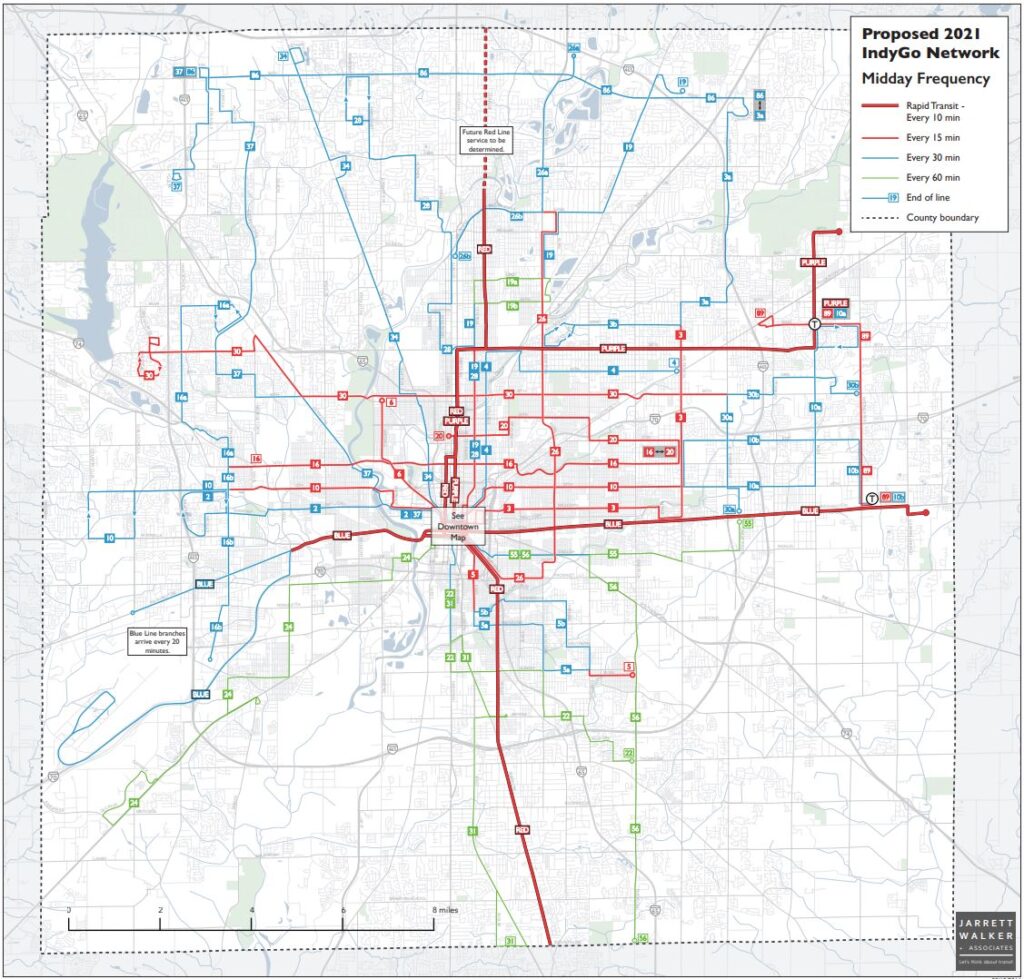Many cities, regions, and states throughout the country have either recently or are now pursuing transit improvement plans similar to Transit Forward RI. These programs are one of the primary ways that places compete for residents and jobs. The overall Transit Forward RI plan draws upon lessons learned from those areas, including how they have addressed similar funding challenges.
All of the plans that been developed elsewhere in the country have required either legislative or voter approval. Since 2000, funding initiatives have been on the ballot in 41 states and over 70% have succeeded (Source: Center for Transportation Excellence). More recently, the success rate has increased, and in the November 2020 election, over 90% of transportation measures, many of which were major transit initiatives, passed.
Click here to read the Transit Forward RI Funding Plan.
November 2020 Transportation Initiatives Presented to Voters
Over 90% of transportation ballot initiatives placed before voters in November were PASSED.
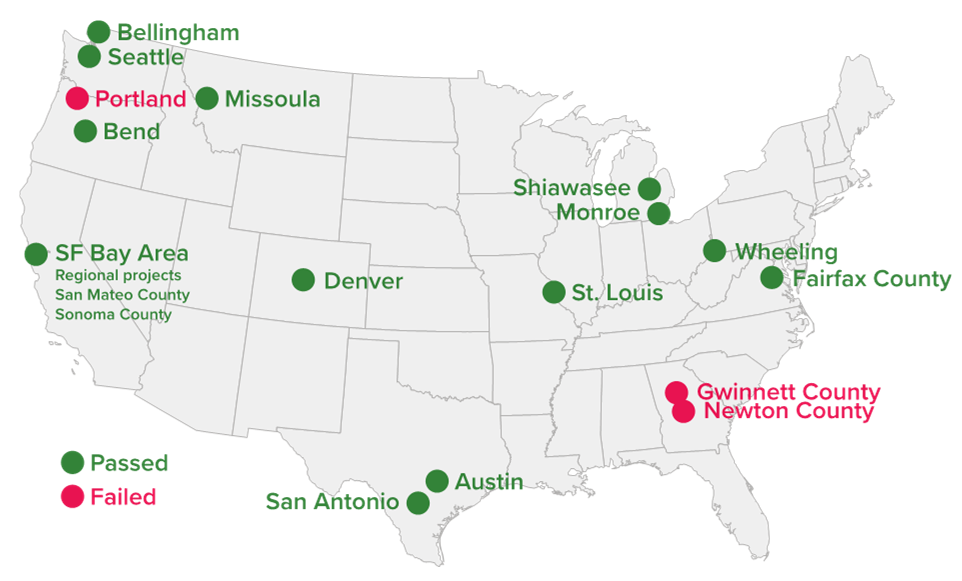
The following table presents information on a large selection of ballot measures since 2015 that share similarities with Transit Forward RI. As shown, a wide variety of funding sources have been and are being used. Some initiatives are funded through a single source, while others are funded through multiple sources.
Illustrative Transit Funding Ballot Issues in U.S. since 2015 (PDF, 0.1MB)
FOUR SIMILAR EXAMPLE BALLOT MEASURES
Project Connect – Austin, TX, which voters approved in November 2020.
Reinventing Metro – Hamilton County, OH, which is where Cincinnati is located, and which was approved in early 2020.
Wake County Transit Plan – Wake County, NC, which is home to Raleigh, and which voters approved in 2016.
Indy Connect – Marion County, IN, which is where Indianapolis is located, and which voters approved in 2016.
Project Connect (Austin, TX)
HTTPS://CAPMETRO.ORG/PROJECTCONNECT/
PROJECT OVERVIEW
Project Connect is similar to Transit Forward RI, but more ambitious. Major elements include:
- 27 miles of light rail
- 1 new commuter rail line
- 1 expanded commuter rail line
- A downtown transit tunnel
- 4 Rapid Bus routes
- 3 new express routes
- 9 new park and ride lots
- 15 new on-demand service zones
KEY FINANCIAL ELEMENTS
- Plan Duration: 20 years
- Capital Cost: $7 billion
- Capital Cost per Capita: $5,549
- Funding Source: Income tax increase of 8.75¢ per $100 of assessed value
- Annual Revenue: $175 million
- Annual Revenue per Capita: $139
Capital Metro, which is Austin’s transit provider and the project sponsor, projects that federal funding will cover approximately 45% of total project costs and that increases in existing revenue sources and the property tax increase will fund the remainder.
APPROVAL MECHANISM
The project and its funding were approved through a voter referendum in November 2020.
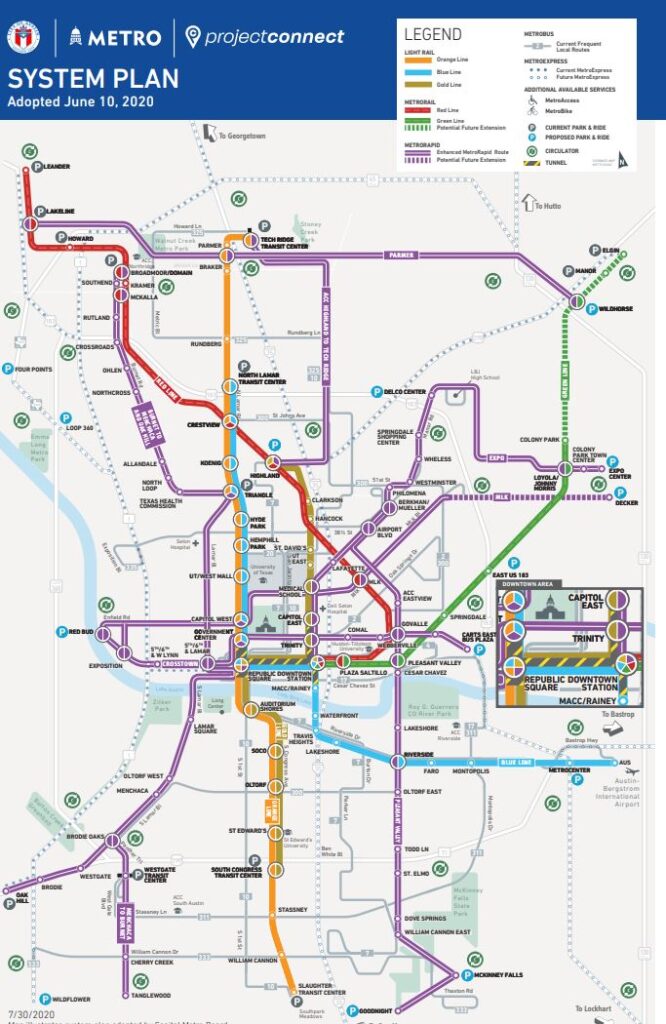
Reinventing Metro
(Cincinnati/Hamilton County, OH)
PROJECT OVERVIEW
Reinventing Metro’s major components are similar to Transit Forward RI’s bus service-related enhancements:
- 2 Bus Rapid Transit lines
- 14 route Frequent Transit Network
- 6 route 24-hour bus network
- 8 new local bus routes and 4 new crosstown routes
- Significantly expanded access to paratransit service
The plan also includes local street repair and maintenance projects.
KEY FINANCIAL ELEMENTS
- Plan Duration: 10 years
- Capital Cost: $2 billion
- Capital Cost per Capita: $2,685
- Funding Source: 0.8% sales tax increase
- Annual Revenue: $175 million
- Annual Revenue per Capita: $175
APPROVAL MECHANISM
The project and its funding were approved through a voter referendum in early 2020.
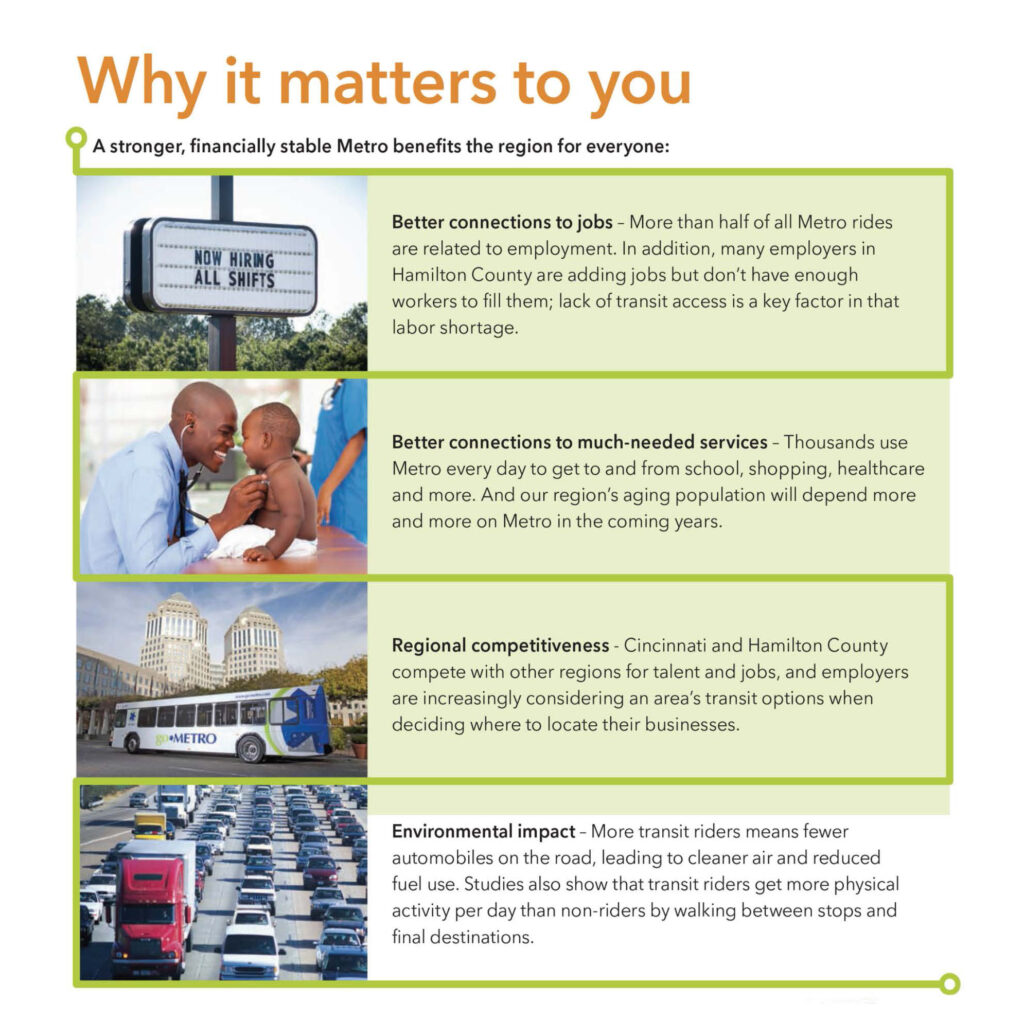
Wake Transit Plan (Raleigh NC Area)
HTTPS://GOFORWARDNC.ORG/COUNTY/WAKE-COUNTY/THE-PLAN/
PROJECT OVERVIEW
Wake County is currently in the process of implementing a $2.3 billion plan based on four “Big Moves,” which are: (1) Connect Regionally, (2) Connect All Wake Communities, (3) Frequent, Reliable Urban Mobility, and (4) Enhanced Access to Transit. Major elements include:
- 2 Bus Rapid Transit lines
- 83 mile Frequent Transit Network
- New 37-mile commuter rail line
- 1 Regional Rapid Bus line
- 8 new express routes
KEY FINANCIAL ELEMENTS
- Plan Duration: 10 years
- Capital Cost: $2.3 billion
- Capital Cost per Capita: $2,246
- Funding Source: 0.5% sales tax increase and $10 vehicle registration fee increase
- Annual Revenue: $87 million
- Annual Revenue per Capita: $85
The sales tax and registration fee increases will provide the required local revenues.
APPROVAL MECHANISM
The project and its funding were approved through a voter referendum in 2016.
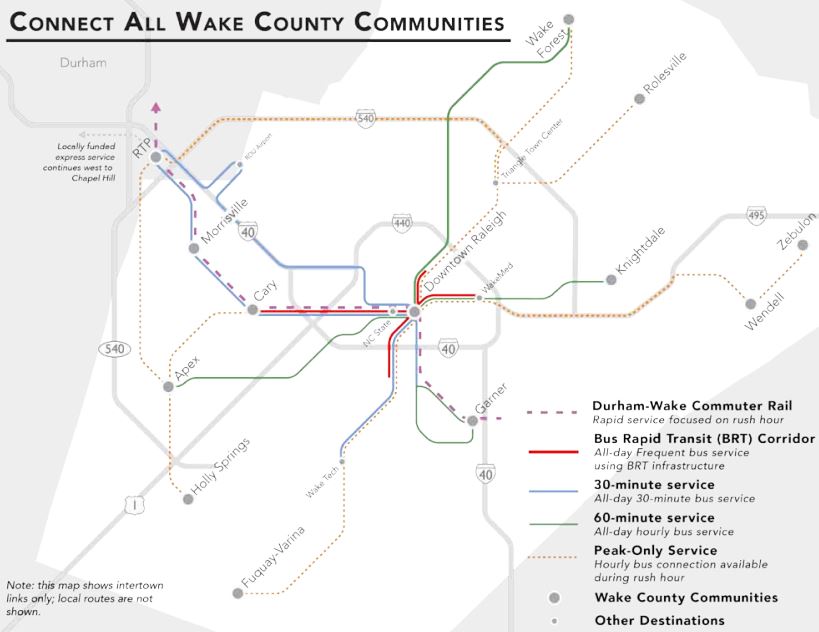
Indy Connect
(Indianapolis/Marion County, IN)
HTTPS://WWW.INDYMPO.ORG/WHATS-UNDERWAY/CENTRAL-INDIANA-TRANSIT-PLAN
PROJECT OVERVIEW
Indianapolis’ transit system, IndyGo is in the process of improving service frequencies and lengthening service hours. Highlights of the program include:
- 3 Bus Rapid Transit lines
- A 13 route Frequent Transit Network
- Longer service hours on most routes
KEY FINANCIAL ELEMENTS
- Plan Duration: 15 years
- Capital Cost: $1.2 billion
- Capital Cost per Capita: $807
- Funding Source: 0.25% income tax increase
- Annual Revenue: $56 million
- Annual Revenue per Capita: $38
APPROVAL MECHANISM
The project and its funding were approved through a voter referendum in 2016.
